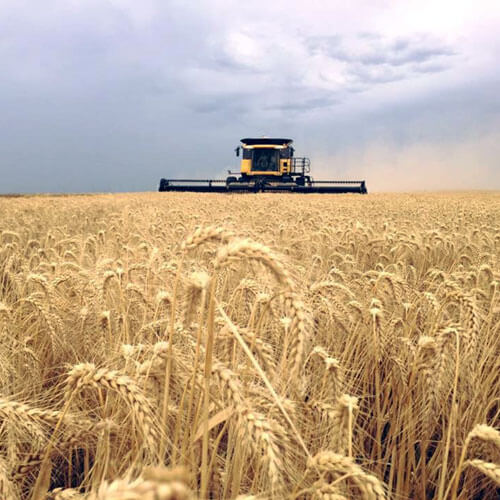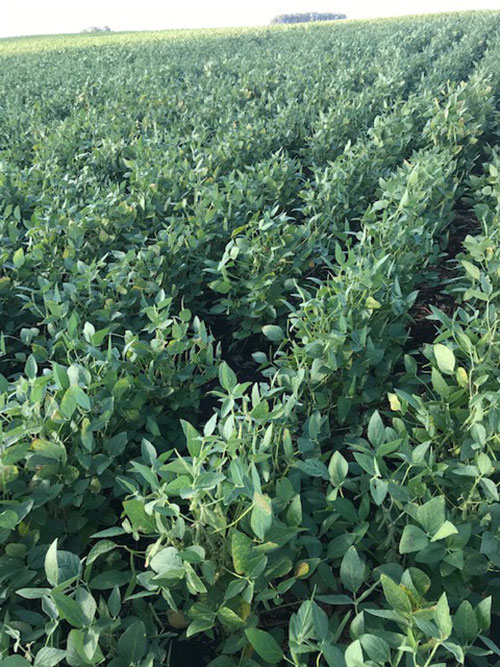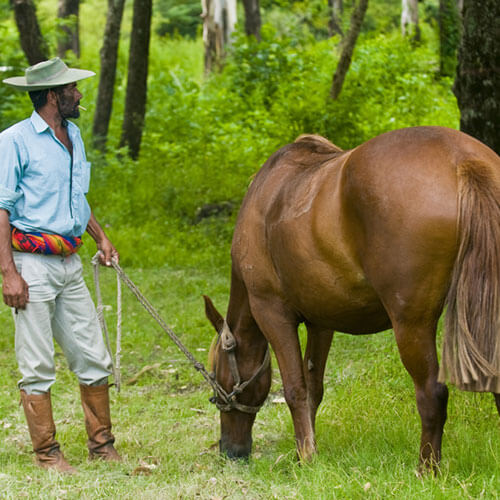Why invest in Uruguay?
Uruguay
Uruguay is a high quality food supplier. With just three million inhabitants, our country feeds over thirty million people worldwide. Our country aims at doubling its production so as to supply food for fifty million people.
The agribusiness sector is innovative and constantly improving. It has positioned as a big revitalizing factor for the country’s economy, representing three quarters of exports. Statistics show that 78% of exports are related to the agriculture and livestock sector, which contributes around 25% of the country’s GDP.
With reliable and high quality products, Uruguay has drawn first class companies that set up and carry out their activities. From here, they provide the world with agriculture and livestock products, a market niche that continues to grow. Our country has been recognized as:
- 2nd wool supplier.
- 3rd cellulose producer.
- 5th high quality rice supplier.
- 5th milk supplier.
- 6th beef supplier.
- 6th soybean exporter.
Exporting these types of products is vital. Unlike most countries which sell their surplus production, Uruguay produces mainly for the foreign market.
The agriculture and livestock sector exports to over 140 markets in the world. The country is internationally recognized for the health measures regarding production and food, which is attained thanks to its strong health policies. Natural geographical conditions are optimal for the production development strategy. Uruguay has 17,000,000 hectares, of which 1.5 million are used for crops.
The countryside takes up around 70% of Uruguay’s surface, being the pillar of the country’s livestock industry. Natural pastures are currently feeding over 12,000,000 cows.
The common objective is to increase production and its quality, taking into consideration the environment and adapting to the climate change that directly impacts on production. This is done with the support of technological innovations and the inclusion of all agricultural producers.
The final consumer has gained reliability. Consumers now read products’ labels and investigate their origin and process: if they are harmless, how they were produced, under which labor standards, etc.
Therefore, environmental management becomes a key element as it adds value to the product. It is now very important to take soil conservation, water quality and a responsible use of chemicals into consideration, and thus get high quality products for the consumer.
While 13% of the world’s greenhouse gas emissions come from agricultural activities, in Uruguay 80% of the country’s greenhouse gas emissions are agriculture related. This reflects the weight this activity has.
The word ‘sustainable’ is a basic concept that affects the whole production chain and increases production in a sustainable way at economical, social and environmental levels.
Like many other agriculture and livestock exporters, Uruguay plays an important role food safety. To keep doing so, we need to protect our agricultural systems from the adverse effects of climate change. As 50% of the planet’s soil is being eroded, Uruguay is proud to be the only country in the world that, since 2013, counts with regulation policies for soil preservation. Moreover, with the direct sowing technique it uses, the erosion is reduced by 80%. Currently, 95% of the country’s agricultural territory is regulated by these soil preservation policies, turning Uruguay into world leader in these matters.
For this, it is no surprise our slogan is “we wrap nature, we sell confidence”.
Uruguay has proved its national commitment to climate change in food systems. It has created sustainable policies that have been implemented in the past years and has become a referent in the food production industry. Uruguay is well aware of the estimated population increase in the future, and takes it as a development opportunity.
And by development, we not only mean increase in production, but we also refer to environmental sustainability and social inclusion. We are an agricultural country for commerce and commerce is pivotal for food safety. The objective is to export food to the most demanding consumers in terms of quality, safety and low environmental impact. This is why we must come up with strategies for the future, with a middle and long term perspective.
History of Uruguay
Traditionally, Uruguay has always been an agriculture and livestock-based country, with good commercial relations with the region and with Europe. The country offers several investment opportunities both in the public and the private sector. Such opportunities are limited by a legal framework and by benefits based in the country’s open economy system that regulate these investments. Uruguay is South America’s smallest country, with a surface of 176,215 km². In 1969 the country extended its maritime jurisdiction by 200 miles, which left it with a total of 125,057 km². The topography is slightly undulating, with hills that go from 100m to 500m high. Regarding its hydrography, there are over 1,127 km of navigable rivers. The weather is temperate and mild, with an average temperature of 17ºC and an average annual rainfall of 1,200mm.
The land is remarkably suitable for agriculture and livestock activities; only 10% of it is unsuitable, while in most countries the common percentage is 50 or 60%. This means Uruguay has 6 productive hectares p/inhabitant, number that only Argentina equals and Australia surpasses. The country also has a solid democratic system and an excellent social environment, characterized by its safety and peace, and a liberal economy, which encourages private initiatives.
This optimal quality of life, together with the environment and security, make Uruguay a good target for international investments. What is more, residential neighborhoods, select clubs, bilingual schools, a recognized health care system and a European-based society, are all factors that help foreigners settle in easily.
Vieragro report
Report on land investments

1248 Dr. Luis Alberto de Herrera Ave,
World Trade Center Tower III , Floor 12
11300 Montevideo, Uruguay
info@vieragro.com.uy


